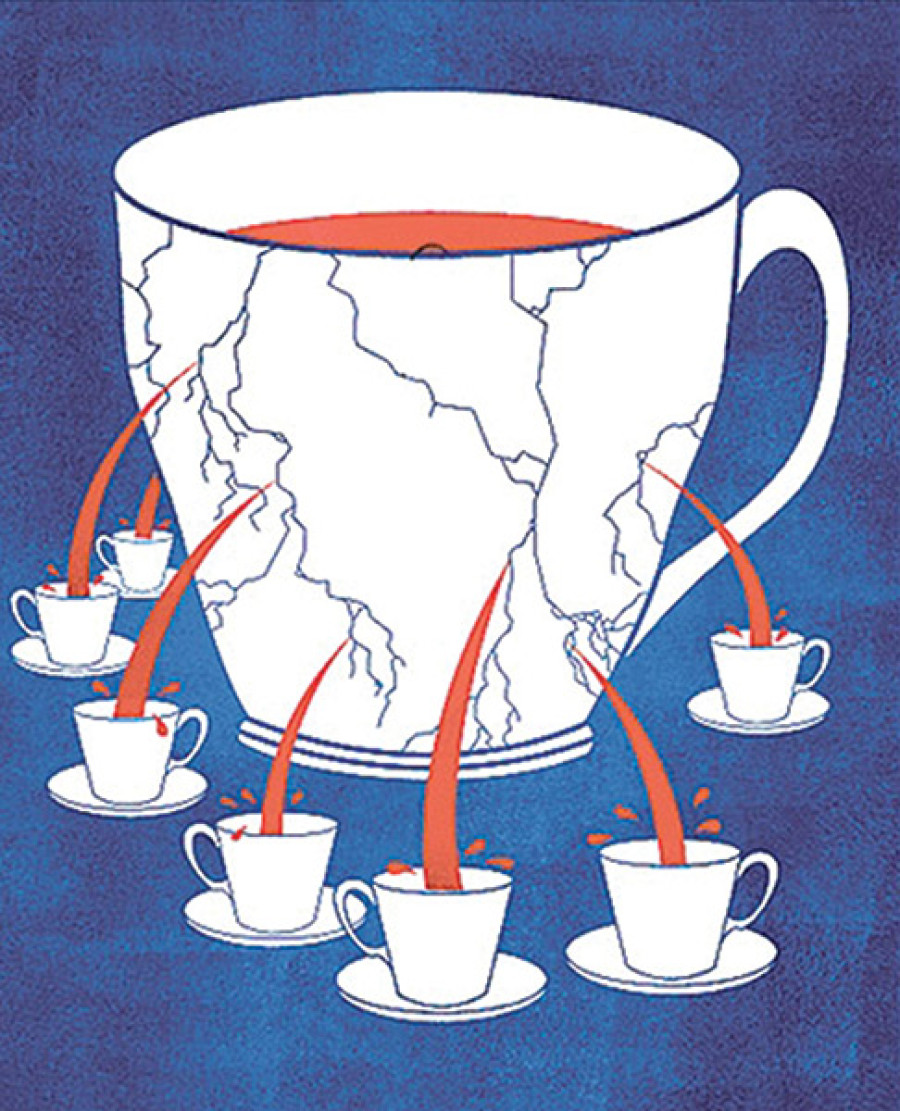Opinion
Poised for a fresh start
Federalism will drive transformation of Nepal’s archaic societal and economic setting
Niraj KC
The completion of parliamentary and provincial elections will officially instate Nepal as the Federal Democratic Republic of Nepal. The country will have seven provinces, which is expected to provide a fertile ground for development. The country’s underdevelopment has primarily been a result of an unceasing struggle for political supremacy. After the reinstatement of multiparty democracy in 1990, Nepal has seen 26 governments, each lasting less than a year on average.
Tailor-made development
The current elections have come as a blessing to Nepal’s politics as they are expected to provide a stable government and reignite the process of structural transformation of the economy and society as a whole. By adhering to the principle of development as a balanced approach between endogenous and exogenous forces, federalism will allow each province to decide its own economic structure. Additionally, the provinces will be allowed to endorse financial and other laws, and even amend them if necessary. Principally, the provinces will be seen as a prime mover for transforming the country’s archaic societal and economic structure. Thus, the federal structure can act as a doctrine of development.
The introduction of federalism is widely expected to end the pattern of lopsided economic and social development as shown by various socio-economic indicators. For instance, Province 7 has the lowest per capita income in the country of $685 while the per capita income in Province 3 is $1,367. The challenges posed by federalism, however, can be daunting as the development of the economy depends not only on internal dynamics but also exogenous variables. In order to successfully institutionalise federalism and benefit from it, coordination among the provinces is a prerequisite. If not, federalism may only create seven semi-colonial states as characterised by constraining economic independence. The provinces may enjoy juridical independence, however, the economy may again be dominated by comprador capital.
Other challenges could come from fiscal federalism and resource allocation. The election will formally end the traditional and centralised practice of redistributing wealth. Henceforth, aspirations to reshape the economy or to redistribute wealth will be guided by new tax laws and regulations under the control of the states. Even though deregulation and decentralisation promises to sketch a new vision of economic reality, fiscal federalism may turn out to be an oxymoron.
Will bureaucratic hurdles end?
This may motivate the states to impose unscientific tax regulations. For instance, the state council may be encouraged, as a transient solution, to charge high taxes rather than broaden the tax base. Likewise, the federal government may overlook pre-set criteria while distributing resources to state and local governments. Nonetheless, the attempt to revamp the economic system and free society from scarcity and underdevelopment is plausible given that the act is based on science and cooperation.
As Nepal’s bureaucratic system is chaotic, it will be interesting to see the impact of federalism on the civil service. For any normal person, visiting a government office to get something done is a bewildering experience. For instance, it took me almost six months to renew my driving license. Unstable governments and excessive politicisation have helped bureaucrats to attain such an objectionable hegemonic status. In this regard, it would be correct to define Nepal’s current political system as ‘bureaunism’, instead of capitalism, communism or socialism. As the elections are expected to provide a stable government, it will be interesting to see if the impervious status of bureaucrats can be challenged.
Economic development in Nepal is a challenging prospect not only because of its political volatility, but also due to complex physical specificities. The answer has been presumed to be federalism and, accordingly, the country with an area of 147,181 sq km has been demarcated into seven states based on geography and population.
Federalism is here to stay, however, whether it will be a boon or bane depends on its economic fruition. At present, the cost of implementing the federal structure looks exorbitantly high as Nepal will officially have more than 800 council members, excluding local executives. Administrative costs are sure to surge, and if economic activities continue to remain stagnant, Nepal will fall into a ‘foreign aid/debt-poverty trap’. For federalism to be firmly established, Nepal must pursue an economic revolution and strive towards developing an egalitarian society. Additionally, the influence of foreign aid must be lessened as it will only create more political space for external intervention. As exemplified by global geo-politics, any unnecessary political interference will be even more harmful in a federal system.
KC holds an MSc in international business and economics from the University of Hohenheim, Stuttgart and is a coordinator at the Nepal Economic Forum




 22.59°C Kathmandu
22.59°C Kathmandu











